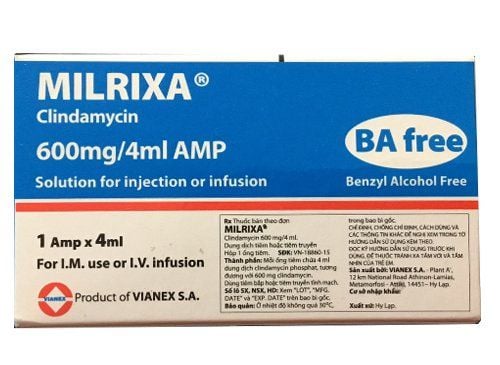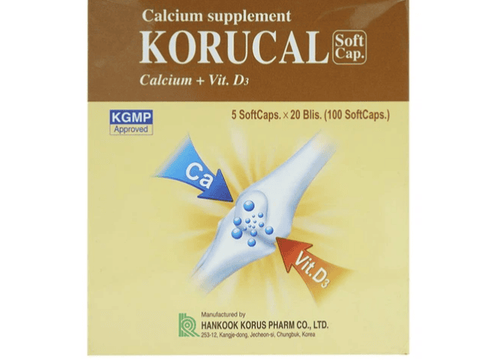This is an automatically translated article.
The article was professionally consulted by Doctor Department of Obstetrics and Gynecology, Vinmec Hai Phong International General Hospital.
Menorrhagia is a menstrual cycle that lasts more than 7 days, loses a lot of blood, and has a great influence on the psychophysiology and health of women. If not treated promptly, menorrhagia can lead to many dangerous complications, even causing infertility.
1. What is menorrhagia?
A normal menstrual cycle will last for about 28 - 32 days, the average menstrual period is 3 - 5 days, losing about 50 - 80ml of blood. Menstrual blood is usually dark red, does not clot, has a lot of debris of cells lining the vagina, uterus and bacteria available in the vagina. Menorrhagia is the phenomenon of menstruation in accordance with the menstrual cycle but lasting for more than 7 days and losing blood in excess of 80ml/cycle.
Menorrhagia is characterized by heavy menstrual bleeding, each dressing change needs to be used up to 2 tampons and needs to be changed continuously every hour. At night, menstruation is still profuse. Menstrual blood often forms large clots and women often experience lower abdominal pain. If menorrhagia is accompanied by menorrhagia for a long time, women often have signs of fatigue, shortness of breath, and symptoms of anemia.
Trắc nghiệm: Sự hiểu biết của bạn về kinh nguyệt
Kinh nguyệt có vai trò quan trọng đối với sức khỏe sinh sản, do đó nữ giới cần chủ động trang bị kiến thức để theo dõi và kiểm soát tình trạng sức khỏe. Bài trắc nghiệm sau đây sẽ giúp bạn hiểu hơn về chu kỳ kinh nguyệt của bản thân.2. Causes of Menorrhagia

Causes of menorrhagia are divided into two categories: functional menorrhagia and organic causes.
Functional menorrhagia: Common in the early and late stages of puberty and perimenopause. At this age, hormones change a lot, the amount of estrogen increases suddenly or decreases sharply, causing the menstrual cycle to prolong and the amount of menstrual blood to be heavy. During the first 2 years after menarche, girls often have irregular periods. The menstrual cycle usually lasts 21-40 days, up and down 10 days between cycles. Menorrhagia is sometimes accompanied by amenorrhea, especially when a woman has had an unusually long menstrual cycle before. Menorrhagia due to physical causes: due to physical damage to the uterus or ovaries such as: endometritis, uterine polyps, uterine fibroids, polycystic ovaries, cervical cancer, cancer trophoblasts, endometrial cancer,... In addition, some birth control pills (especially emergency contraceptive pills) can cause menorrhagia.
3. Menorrhagia has any effect?
Menorrhagia causes many consequences such as:
Prolonged menstrual bleeding will cause women to lose a lot of blood, leading to anemia with symptoms such as fatigue, shortness of breath,... Bleeding status Prolonged exposure creates favorable conditions for bacteria to enter, causing genital infections. Bacteria can spread back from the vulva into the vagina, into the uterus, up the fallopian tubes, causing appendicitis or even infertility later on; It affects many daily activities, making women always feel uncomfortable or even scared when it comes to menstruation; Menorrhagia is also a symptom of some gynecological diseases such as uterine fibroids, uterine polyps, endometritis, polycystic ovaries, etc. If not treated early, these diseases will lead to to many unpredictable complications.

4. What should be done when menorrhagia?
When menstruating, women should follow these instructions:
Lie down if bleeding is excessive; Keep healthy by eating, resting in moderation, exercising regularly, avoiding stress, prolonged fatigue; Maintain a diet low in meat and fat, add foods rich in magnesium, zinc, iron, vitamins B1, B6 and vitamin E. Women should abstain from stimulants such as coffee, alcohol and some spices. spicy during menstruation; Eat wormwood every day because according to Eastern medicine, wormwood has the effect of regulating menstruation, reducing menstrual pain, reducing bad blood in the menstrual cycle; Go to a gynecologist to have a doctor diagnose the exact cause and come up with a treatment plan suitable for your location and severe and mild illness; When having menorrhagia, patients should go to specialized medical facilities to examine, determine the cause and have appropriate treatment, to avoid this situation lasting, affecting health as well as fertility. . Currently, In order to help customers detect and treat early gynecological diseases in general and the causes of menorrhagia in particular, Vinmec International General Hospital has a package of basic gynecological examination and screening. can detect early diseases of inflammatory diseases and treat them easily and inexpensively. Screening detects gynecological cancer (cervical cancer) early even when there are no symptoms.
Basic gynecological examination and screening package for female customers, has no age limit and may have the following symptoms:
Abnormal vaginal bleeding Having menstrual problems: irregular menstrual cycle, irregular menstrual cycle Irregular vaginal discharge (smell, different color) Vaginal pain and itching Female clients have several risk factors such as poor personal hygiene, Unsafe sex, abortion,... Female customers have other symptoms such as: Abnormal vaginal discharge, itching, pain in the private area, abnormal vaginal bleeding. When registering for the Basic Gynecological Examination and Screening Package, customers will receive:
Gynecological Specialist Examination Transvaginal Uterine Ovarian Ultrasound Vaginal Bilateral Breast Ultrasound Tests such as: Treponema pallidum test rapid, Chlamydia rapid test, taking samples for cervical-vaginal cytology, bacterioscopic staining (female vaginal fluid), HPV genotype PCR automated system, Urinalysis by automatic machine.
Please dial HOTLINE for more information or register for an appointment HERE. Download MyVinmec app to make appointments faster and to manage your bookings easily.













